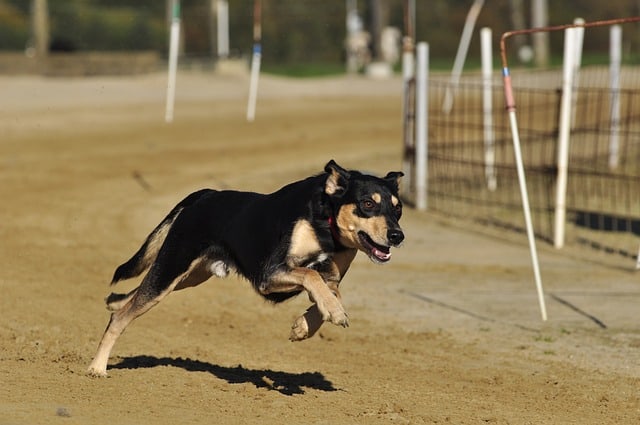Just as we are concerned that our furry friend gets enough exercise , so we must also think about exercising his mind.
For this purpose, there are numerous intelligence games for dogs specially designed for the animal to solve a series of problems and thus receive a reward.
Boost your dog’s intelligence

As you can imagine, in pet shops you will be spoiled for choice. However, with a good dose of imagination, some materials and a lot of good will, you too can try your hand at creating different intelligence games for your furry friend.
The ideal is to start with something easy, and then gradually increase the degree of difficulty, as your dog successfully completes the tests you propose.
This type of activity will give your four-legged friend the opportunity to:
- increase his ability to solve problems and train his memory;
- feel more motivated;
- avoid boredom;
- decrease stress;
- avoiding behavioral problems.
Challenging Games for dogs
In order for your dog to train his mind satisfactorily, it is essential that he has fun: learning by playing is usually the best way to acquire skills and new knowledge. This applies to both dogs and humans.
Try, therefore, very patiently and gradually, to teach your dog the operation of each play proposal, so that he understands what he has to do.
It is then a question of rewarding him every time he makes progress – you can give him, for example, food that he particularly likes or even with praise and pampering – and avoid stressing him too much if he is not able to quickly carry out the task you have entrusted to him.
Below we give you a series of game proposals to stimulate the intellect of your four-legged friend.
1. Obstacle course
The aim of this intelligence game is for your furry friend to be able to follow a “forced” path until he gets to a prize , which in this case will be one of his favorite snacks . Here’s how to prepare the route:
- Create an obstacle on the floor by placing, for example, two chairs lying on the ground and next to each other or another type of furniture.
- At one end of the obstacle, place the treat while your dog watches you from the other side.
- Let your dog find his own way to reach the loot, passing over or under the obstacle that stands in his path, or perhaps bypassing it.
Don’t forget that every time your furry friend succeeds in a test, you will have to add new obstacles to the path to increase the difficulty of the game.
Through this exercise, you will be able to understand if your dog is inclined or not for dog sports, such as agility dog .
2. Hide and seek
In this case, hide one of his favorite snacks somewhere in the house and start the research.
As your dog finds his treat, you can increase the number of hiding places to find new treats. If you have a garden, terrace or courtyard, it will be fun to include these spaces in the search area.
3. Game of the three cans
- Bring some cups or other similar objects, large enough not to be swallowed by your dog.
- You start the game with a single cup, in which you have hidden food or a snack.
- When your dog understands how the game works, you can also start using the other cups, so that he can discover, from time to time, under which or which cups the prizes are hidden.
A variation of this game involves the use of a muffin mold or something similar: you will put the food treats only in some of the cavities of the mold and then you will plug them all by placing a ball on each of them, to let your friend find out under which balls there is a prize.
4. Plush hunting
- Take a string or thread and tie a stick at one end and a soft toy or similar puppet on the other.
- Put the puppet on the ground for your dog to see clearly , and hide behind a door or wall.
- When the puppet has finally attracted the attention of your dog, start moving the stick, so that the animal does not immediately get the better of its “prey”.
You can also use food instead of a puppet as a variant of the game.
“The dog knows, but he doesn’t know he knows.”
-Pierre Teilhard de Chardin-
Active mind: the key to happiness
Don’t forget that a dog whose mind is kept in training will be a happier animal.
By mentally stimulating your furry friend, you will avoid certain unpleasant behaviors, such as:
- Property damage in the house.
- Excessive barking .
- Exaggerated independence from the master.
- Attacks of jealousy.
In light of all this, do not deprive your four-legged friend of the opportunity to learn while playing and take advantage of it to have fun and spend some time together.






